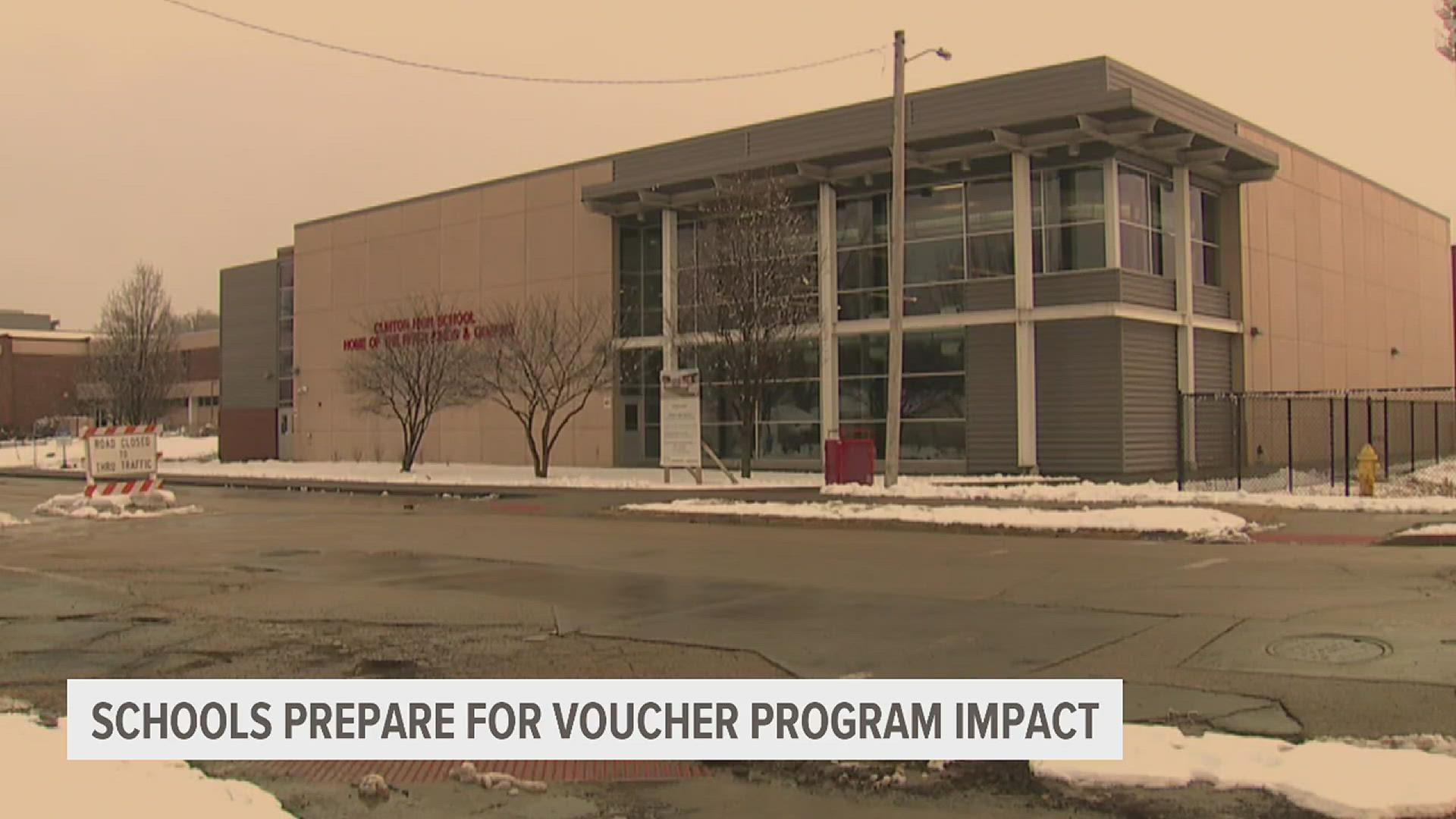CLINTON, Iowa — Life often presents us with many different choices.
It has been just more than 24 hours since Iowa Gov. Kim Reynolds signed the state's 'school choice' plan into law. Even though the Governor and private schools are claiming this as a victory, school leaders are still waiting to determine how it will affect each school, financially or otherwise.
Under the new plan, Iowa families can select which private schools to attend and use funding from the state to pay for certain costs.
"Taxpayer dollars should go to children. End of discussion," said Joe Brown, the Principal of Prince of Peace Catholic School in Clinton.
Brown has been a long-time supporter of the new law but said discussions are already underway for what happens next.
"My expectation is that enrollment will probably increase," Brown said.
That increase, he believes, will come directly from the state's education plan.
"Prince of Peace isn't going to be the best school choice for some, just like Clinton Schools may not be the best for some," Brown said.
Clinton Community School District Superintendent Gary DeLacy is most worried about the financial impact on his district three years down the road but believes Clinton will be financially stable for the upcoming school year.
"I think it's going to get to a point where we're revenue neutral, and how do you continue to attract and retain staff if they're going to get to a point where we can no longer provide additional revenue?" DeLacy asked.
Under the new law, private school families would receive $7,598 per student per year to help cover costs associated with attending a private school. That amount is the same the Clinton Community School District receives per student from the state, DeLacy said.
"For one system we're going to pick and choose who we serve and the other will still accept everyone, and basically the funding per pupil is the same," DeLacy added.
A new law aimed at choice may force others to make their own.
"All that I'm asking for is an equal playing field between public and private schools," DeLacy said.
It will still take time to determine how the law will actually be implemented before it goes into effect in July. That includes establishing rules and regulations for the legislation.
That process could take as long as six to nine months, but could be shorter since Gov. Reynolds has proposed this type of legislation before.
DeLacy said he would support additional legislation for private schools to receive funding for students in special education programs. He believes that would increase fairness between public and private schools.

